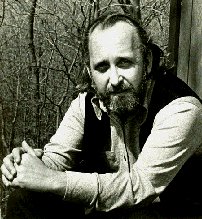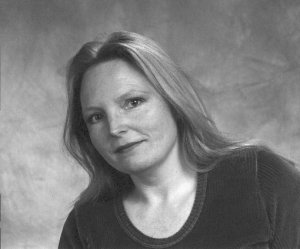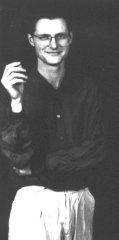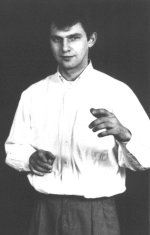koncertberichten
ANTI-ROYAAL KONCERT
Welke muziek is beter geschikt om de principiële idee van gelijkwaardigheid der burgers tegenover de ideologie van het ancien regime zoals we die geëxponeerd vinden in het koningshuis, te illustreren dan de 
Een enkel element uit het oorspronkelijk opzet werd gewijzigd: Tom Johnson herhaalt de C omdat hij het oktaaf als 13-noten beschouwt. Daardoor kreeg deze C een klein overwicht, wat wij de noot niet konden gunnen...
Omdat het geheel niet mechanisch zou worden, is de software bovendien echt interaktief opgezet. Tempo, aanslag, mikro-metriek... zijn in real time kontroleerbaar.
We dragen dit koncert tevens op aan Tom Johnson die dit jaar zijn zestigste verjaardag viert en presenteren bij dezelfde gelegenheid tevens de zopas op het New Yorkse label XI verschenen CD waarop Tom Johnson zelf de gehele Chord Catalogue laat horen. (GWR)
JEROME ROTHENBERG
 Jerome Rothenberg (°1931, New York City) is auteur van meer dan 40 poëziebundels en een hele resem vertalingen (van o.m. Paul Celan, Garcia Lorca en Kurt Schwitters) en anthologieën.
Kenneth Rexroth schreef over hem: "[He] is one of the truly contemporary American poets who has returned U.S. poetry to the mainstream of international modern literature.… No one writing today has dug deeper into the roots of poetry." Richard Kostelanetz omschreef hem als een 'master anthologist', titel die hij verdiende met anthologieën als "Technicians of the Sacred", "Symposium of the Whole: A Range of Discourse Toward and Ethnopoetics" (i.s.m. Diane Rothenberg) en "Shaking the Pumpkin: Tradional Poetry of the Indian North Americas".
Jerome Rothenberg (°1931, New York City) is auteur van meer dan 40 poëziebundels en een hele resem vertalingen (van o.m. Paul Celan, Garcia Lorca en Kurt Schwitters) en anthologieën.
Kenneth Rexroth schreef over hem: "[He] is one of the truly contemporary American poets who has returned U.S. poetry to the mainstream of international modern literature.… No one writing today has dug deeper into the roots of poetry." Richard Kostelanetz omschreef hem als een 'master anthologist', titel die hij verdiende met anthologieën als "Technicians of the Sacred", "Symposium of the Whole: A Range of Discourse Toward and Ethnopoetics" (i.s.m. Diane Rothenberg) en "Shaking the Pumpkin: Tradional Poetry of the Indian North Americas".
PROGRAMMA 3 (1968)
Ik zie mezelf als iemand die gedichten maakt die andere dichters
me niet hebben verschaft & waarvan ik de diepe noodzaak voel.
Ik zoek naar nieuwe vormen & mogelijkheden, maar ook naar wegen om
in mijn eigen taal de oudste mogelijkheden van de poëzie weer te geven
teruggaand naar de primitieve & archaïsche kulturen die voor ons
gedurende de laatste honderd jaar werden geopend.
Ik heb zeer onlangs Amerikaanse indiaanse poëzie vertaald (met
inbegrip van de 'betekenisloze' lettergrepen, woordvervormingen &
muziek) & ik heb de voorouderlijke bronnen van mezelf geëxploreerd in
de wereld van de joodse mystieken, dieven & gekken.
Ik geloof dat alles mogelijk is in poëzie & dat onze vroegere 'westerse'
pogingen tot definiëren getuigen van een waarnemingsfout die we niet
langer moeten dulden.
(Jerome Rothenberg, vertaald door Jan H. Mysjkin i.s.m. Annemarie Nagel, in 'Gedichten voor het spel van de stilte', Masereelfonds, Gent)
Jerome Rothenberg was born in New York City in 1931, the son of Morris and Estelle Lichtenstien Rothenberg. He graduated from the City College of New York in 1952 and the following year received a Master's Degree in Literature from the University of Michigan. He spent the years 1953-1955 in the U.S. Army, stationed in Mainz, Germany, and returned for further graduate studies at Columbia University from 1956 to 1959.
Rothenberg's first published work, a group of translations from the German, appeared in the Winter 1957 issue of The Hudson Review. In 1958 Lawrence Ferlinghetti asked Rothenberg to translate a collection of postwar German poetry, which City Lights Books published in 1959 as New Young German Poets. This work marked the first appearance in English of such poets as Paul Celan, Gunter Grass, and Ingeborg Bachman.
In 1958 Rothenberg founded Hawk's Well Press, which published early works by Robert Kelly, Diane Wakoski, Armand Schwerner, and Rochelle Owens, as well as Rothenberg's first book of poems, White Sun Black Sun. As an adjunct to these activities, Rothenberg edited the magazine Poems from the Floating World, which included new works by poets Jackson Mac Low, Robert Bly, Denise Levertov, Paul Blackburn, Gary Snyder, and Robert Duncan. The magazine was superseded in 1965 by Some/Thing, co-edited with David Antin.
Rothenberg's works during this period reflect his experimentation with image in White Sun Black Sun (1960) and attempts at thematic enlargement in The Seven Hells of the Jigoku Zoshi (1962) to experiments with silences and disjunctions in Sightings (1964) to further explorations of alternate poetic structures, uses of found poetry and collage, development of forms suggested by Gertrude Stein's work, experiments with dialogue and narrative that mark The Gorky Poems (1966), Conversations (1968), and Poems 1964-1967. These concerns and the connections between them were presented in Rothenberg's next work, Poems for the Game of Silence (1970).
Rothenberg's concern for the relationship between "primitive" and modern poetry led to the development of an anthology of primitive and archaic poetry, Technicians of the Sacred (1968). This work attempted to redefine the range of primitive poetry, presenting not only words of songs, but picture poems, sound poetry, naming poems, dreams and visions and scenarios of ritual-events. With the completion of this work, Rothenberg directed his attention to ethnopoetics and began a study of Senecan Indian songs at the the Allegheny Reservation in Steamburg, New York.
In 1968 Rothenberg received a grant from the Wenner-Gren Foundation in Anthropological Research to conduct a two-part experiment in the translation of American Indian poetry. The project involved a collaborative translation between Rothenberg and Seneca songmen and the translation of a series of Navajo horse-blessing songs. In this effort, Rothenberg began to develop an approach he termed "total translation," meaning that he accounted in the English version for every element in the original language, including the so-called "meaningless" vocables, word distortions and redundancies. This close study and involvement with American Indian poetry and ritual promoted the development of Rothenberg's next anthology, Shaking the Pumpkin: Traditional Poetry of the Indian North Americas (1972).
Rothenberg's interest in American Indian and other tribal/oral poetries led to the development of a magazine, Alcheringa, the first periodical devoted exclusively to ethnopoetics which he co-edited with Dennis Tedlock from 1970-1976. Concurrent with this interest, Rothenberg began exploring his own ancestral themes and the lost world of Jewish Poland in a series of poems which culminated in A Book of Testimony (1971), Esther K. Comes to America (1973), and Poland/1931 (1974).
With George Quasha, Rothenberg published America A Prophecy in 1974. The intent of this anthology was to redefine the past and present of American poetry over an expanse of time and cultures. Also in that year he received a Guggenheim Fellowship, and in 1976 a grant from the National Endowment for the Arts.
In 1978 Rothenberg published A Big Jewish Book: Poems and Other Visions of the Jews from Tribal Times to the Present. Co-edited with Harris Lenowitz and Charles Doria, this volume broke new ground in the fields of poetry and history. The book provides a unique history/anthology of Jewish consciousness in the form of poetry and oral traditions. For the book, Rothenberg drew on both sacred and secular sources, with the link between them emphasizing the poetic/visionary continuum and the mystical and magical side of the Jewish tradition. To document the entire range of the Jewish poetry tradition, Rothenberg divided the book into three sections which explore the mythic, historic, and poetic themes of Jewish poetry. Many of the works contained were newly translated or uncovered.
Rothenberg's next major anthology, Symposium of the Whole: A Range of Discourse Toward An Ethnopoetics, co-edited with Diane Rothenberg, appeared in 1983. This book traces an ongoing course of work and thought on poetry and culture that has influenced the art of modern times. Symposium follows the concept of ethnopoetics from the writings of predecessors such as Vico, Blake, Thoreau, and Tzara to more recent essays and manifestos by poets and social thinkers, including Olson, Eliade, Snyder, and Baraka. The work is unique in its vision and scope, addressing both poetics and politics.
Since 1960, Rothenberg has served as an instructor at various colleges and universities, including: the City College of New York (1960-1961); the Mannes College of Music, New York City (1961-1970); the Universityof California, San Diego (Regents' Professor, 1971); the New School for Social Research (1971-1972); the University of Wisconsin, Milwaukee (1974-1976); San Diego State University (1976-1977); the University of California, San Diego (1977-1985); SUNY Albany (Writer in Residence, 1986); SUNY Binghampton (1986-1988); and the University of California, San Diego (1988- ).
Finally, Rothenberg has translated work by Paul Celan, Hans Magnus Enzensberger, Eugen Gomringer, Rolf Hochhuth, Garcia Lorca, Kurt Schwitters and many other European writers into English. In 1968 Rothenberg received a Wenner-Gren Foundation grant for the experimental translation of American Indian poetry. Rothenberg's own selected poetry, Poems for the Game of Silence, has appeared in French, Swedish, and Flemish/Dutch editions, and his work has been extensively translated into Spanish, Dutch, Italian, German, Serbian, and Finnish.
FRANÇOISE VANHECKE & KATRIJN FRIANT
 Françoise Vanhecke kan je op z'n minst een all-round musicus noemen. Als kind studeerde zij viool, speelde mee in het jeugdorkest, volgde ballet en bewegingsleer. Later studeerde zij aan het Gentse Conservatorium: notenleer, zang, piano, lyrische kunst, harmonie, kontrapunt en fuga, diktie, muziekanalyse, muziekgeschiedenis, muziekpedagogie, enz, enz… Nadien ging ze zich perfektioneren bij o.m. Ré Koster, Ernst Haeffliger, René Jacobs, Dorothy Dorow, Ray McDermott, Julian Pike, Erika Pauwels en Zeger Vandersteene. Daarnaast volgde ze in 1998 en 1999 de zomerkursussen van Karlheinz Stockhausen in Kürten. Zij is dan ook een veel gevraagde vertolkster met een bijzonder uiteenlopend aktieterrein van solowerk tot opera, van de oudste tot de nieuwste muziek, zingend, akterend, improviserend, klavierspelend. Zij was te horen met o.m. La Petite Bande, Ensemble Itinéraire, Vox Nova, Ensemble Intercontemporain, het Vlaams Symfonisch Orkest, I Fiamminghi, het Spectra Ensemble en het Novecanto koor. Maar ze bewandeld ook minder begane paden, zo nam ze deel (als badkuipsopraan) aan de Logos Produktie Rooie Nikki, aan de openingsperformances van het SMAK, aan modeshows, poppentheater, enz, enz… Daarnaast vind ze ook nog tijd om les te geven aan het Conservatorium van Kortrijk en de Gentse Hogeschool. En, last but not least, onder de naam Irma Bilbao is ze aktief als komponiste.
Françoise Vanhecke kan je op z'n minst een all-round musicus noemen. Als kind studeerde zij viool, speelde mee in het jeugdorkest, volgde ballet en bewegingsleer. Later studeerde zij aan het Gentse Conservatorium: notenleer, zang, piano, lyrische kunst, harmonie, kontrapunt en fuga, diktie, muziekanalyse, muziekgeschiedenis, muziekpedagogie, enz, enz… Nadien ging ze zich perfektioneren bij o.m. Ré Koster, Ernst Haeffliger, René Jacobs, Dorothy Dorow, Ray McDermott, Julian Pike, Erika Pauwels en Zeger Vandersteene. Daarnaast volgde ze in 1998 en 1999 de zomerkursussen van Karlheinz Stockhausen in Kürten. Zij is dan ook een veel gevraagde vertolkster met een bijzonder uiteenlopend aktieterrein van solowerk tot opera, van de oudste tot de nieuwste muziek, zingend, akterend, improviserend, klavierspelend. Zij was te horen met o.m. La Petite Bande, Ensemble Itinéraire, Vox Nova, Ensemble Intercontemporain, het Vlaams Symfonisch Orkest, I Fiamminghi, het Spectra Ensemble en het Novecanto koor. Maar ze bewandeld ook minder begane paden, zo nam ze deel (als badkuipsopraan) aan de Logos Produktie Rooie Nikki, aan de openingsperformances van het SMAK, aan modeshows, poppentheater, enz, enz… Daarnaast vind ze ook nog tijd om les te geven aan het Conservatorium van Kortrijk en de Gentse Hogeschool. En, last but not least, onder de naam Irma Bilbao is ze aktief als komponiste.
Katrijn Friant studeerde o.m. piano, blokfluit, viola da gamba, orgel en liedbegeleiding. Als pianobegeleidster werkte zij samen met o.m. Erika Pauwels, Zeger Vandersteene, Lucien Posman, het blaaskwintet Arcane, het Belgisch Hobotrio, en het kamersensemble van het Vlaams Filharmonisch Orkest.
Een uitgebreide gespecialiseerde ervaring als repetitor en uitvoerder van theaterprodukties kreeg ze in het Theater Arena. Verder werkte ze ook nog bij het NTG, Arca het Etherisch Strijkersensemble, het Belgisch Combo en de Vlaamse Opera.
Op gebied van kamermuziek vormt zij samen met Françoise Vanhecke en Piet Van Bockstal vaste koncertduos, gespecialiseerd in het hedendaagse repertoire.
Als soliste of begeleidster nam ze deel aan belangrijke internationale manifestaties zoals Festival van Vlaanderen, Ars Musica, Anjer Festival (GOS), Festival of Fools (Nederland, Denemarken, Duitsland), Musica Nova en Mostra de Musica Contemporânea (Brazilië). Zij kreëerde tal van werken van binnen- en buitenlandse komponisten (Boudewijn Buckinx, Lucien Posman, Elias Gistelinck, Frank Nuyts, Gilberto Mendes, Correa de Oliveira, Marina Smotova, Violeta Dinescu, Silvio Ferraz,…).
Als dirigent trad ze op in belangrijke muziek- en theaterprodukties en bracht een aantal werken in Belgische kreatie, zoals het Nonet (1923) van Villa-Lobos en het Requiem (1925) van H. Oswald.
Zij is lerares vakdidaktiek piano aan het Conservatorium van Gent, waar zij ook begeleidster is, en pianolerares aan de Muziekakademie van Deinze.
programma
The Spirit in the Song
Lieder Ohne Worte (boek 3) (1996) van Dimitri Terzakis
Secret Message (1998) van Mark Warhol uit Crazy Rabbit Songs, tekst: Hardy Coleman
The Syzygetic Zax van Stephen Truelove, tekst: Ron Phelps
Four Poems by Two Poets van Stephen Truelove
Beauty Runs Faster (1978) van Beth Anderson
Lullaby (1998) van Beth Anderson, tekst: W.H. Auden
Tierkreis (1975/76) van Karlheinz Stockhausen
WIM KONINK & MARCEL ANDRIESSEN
Het Nederlandse slagwerkduo Konink & Andriessen werkt sinds 1991 intensief samen. De muziektheaterproduktie "Antigone" van Luc Brewaeys was de eerste aanleiding voor deze muzikanten om als duo samen te werken. Zij werkten als leden van diverse ensembles, zoals het Gaudeamus Ensemble, The Barton Workshop, The Composers Boys, Ensemble Polychromie en Walpurgis. Zij verzorgden de opening van "Antwerpen Culturele Hoofdstad 1993" als slagwerkduo in "Talisker", het werk dat Luc Brewaeys voor die gelegenheid kompondeerde. Zij werkten als duo ook mee aan de theaterprodukties "Tweelingen" (Leporello) en "Vies Liesje" (Teneeter/Artemis). Voor de theaterprodukties "Vies Liesje" en "Coriolanus" ('de Stichting Lichting') schreven zij ook de muziek. Hun voornaamste aktieterrein is echter het spelen van nieuwe komposities voor slagwerkduo, waarvoor zij vaak rechtstreeks met de komponisten werken.





